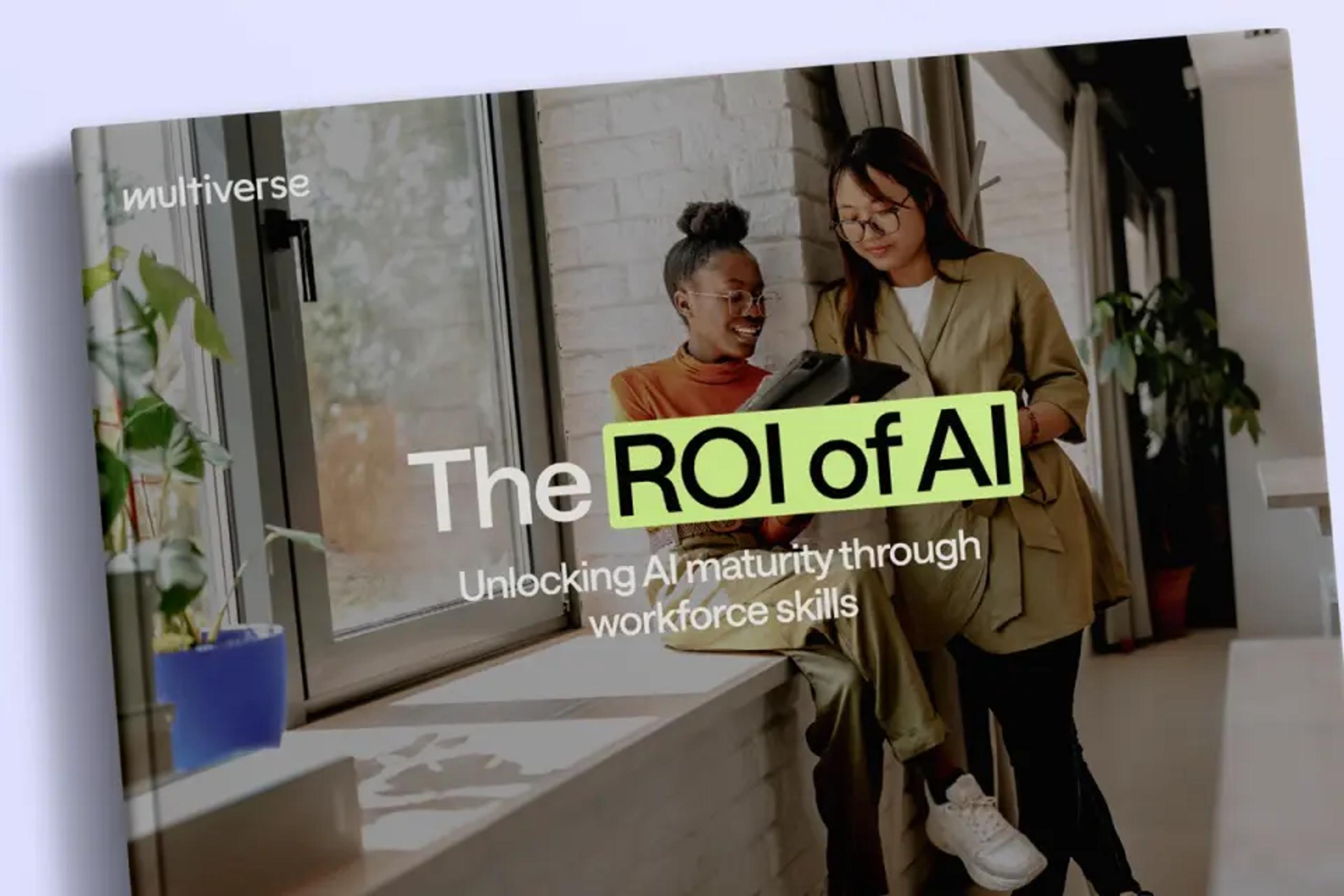For leaders across the world, the Artificial Intelligence (AI) conversation is shifting from hype to implementation.
AI is here to stay, and holds real potential for businesses and employees that know how to use it. It’s likely your teams are already using AI to improve workflows or efficiencies, and you might have employees experimenting with AI tools on-the-job.
But the skills needed to leverage the technology to its full potential don’t begin and end with prompt engineering. For AI usage to be effective and strategic there are other skills employees can build – and will likely need very soon for organisations to remain competitive.
That’s because the increasing use of AI in the workplace has arrived hand-in-hand with an ever-pressing skills gap. In fact, nearly half (45%) of leaders name AI as their most significant skills shortage, according to our Preparing for the AI Revolution report – one that must be addressed if businesses are to get the most value from the technology.
Here are four things your team needs to understand to drive real value with AI, this year and beyond:
How to collect, clean, and prepare data
AI has exciting potential applications for data analysis. It can help businesses quickly transform large datasets into actionable insights and predictions, and increase the speed and accuracy of data-driven decision-making(opens new window). But the ability to drive real value comes from the state of your data.
Before everything else, data must be collated, cleaned and prepared for analysis. Only then can it support AI use cases effectively and deliver the outcomes businesses want and need.
For this to be possible, upskilling your teams in core data skills is vital. Whether that’s understanding the data lifecycle in relation to AI or being able to evaluate your organisation’s data infrastructure effectively, it’s about making sure your teams are skilled in the fundamentals of AI and data.
If your employees are struggling to get to grips with the data that underpins your AI tools, check out our beginner’s guide to data analysis methods here.
How to experiment with AI safely and ethically
As businesses implement new AI-enabled solutions, processes and policies need to evolve, to help employees navigate the application of these emerging technologies.
Setting out clear guidance is the first step towards helping employees understand the organisation's stance on AI and any approved tools they can use to experiment.
Adhering to this guidance is fundamental. But, employees today must also know how to identify ethical risks and considerations in AI applications themselves. That means having the skills to mitigate biases and risks associated with AI.
Upskilling employees to be able to experiment with AI safely and ethically will help to arm your organisation with technically minded individuals. Ones that can take advantage of opportunities while also implementing fair, transparent and accountable practices in AI algorithms and decision-making.
How to identify opportunities for AI
There’s a lot of potential for skilled employees to deeply understand business needs. From aligning AI solutions directly to business problems, to optimising processes and implementing AI projects that deliver on tangible business impact – and ROI.
But the fundamentals of business analysis with AI require employees to apply different techniques, approaches and understandings to a variety of scenarios. For example, being able to conduct comprehensive analyses of internal and external business environments to gain strategic insights. Or the ability to surface business pains and gather input on potential solutions from key stakeholders.
Being able to spot opportunities for AI means having employees in-house who are skilled in not only evaluating the state of your business, but also in understanding its needs.
How to manage and communicate organisational change around AI
Whether it’s the ability to identify opportunities or implement new solutions, extending AI use throughout your organisation is vital for driving future progress.
But managing change through AI initiatives isn’t simple.
Communicating critical information about AI projects to technical and non-technical stakeholders is an ongoing challenge for those using data and AI in their everyday roles. But it’s inherently important to the overall success of AI usage in your organisation.
For instance, being able to effectively describe the process for taking an AI project from idea to implementation is vital to secure buy-in from key stakeholders across the business. Or the ability to identify different models for ways of working on AI projects that enable teams to collaborate more efficiently.
While communication is typically considered a ‘soft skill,’ it’s fundamental to delivering ROI and measuring the business impact of AI initiatives effectively.
If you’re looking to upskill your employees with soft skills training, check out our article here.
Drive business value with AI
Check out our AI for Business Value programme and help your team leverage AI responsibly to drive business outcomes.







